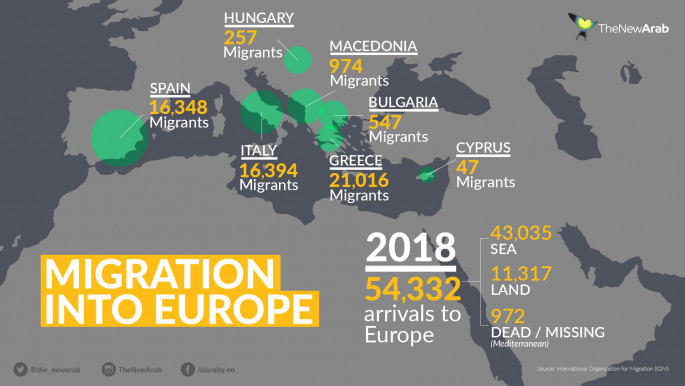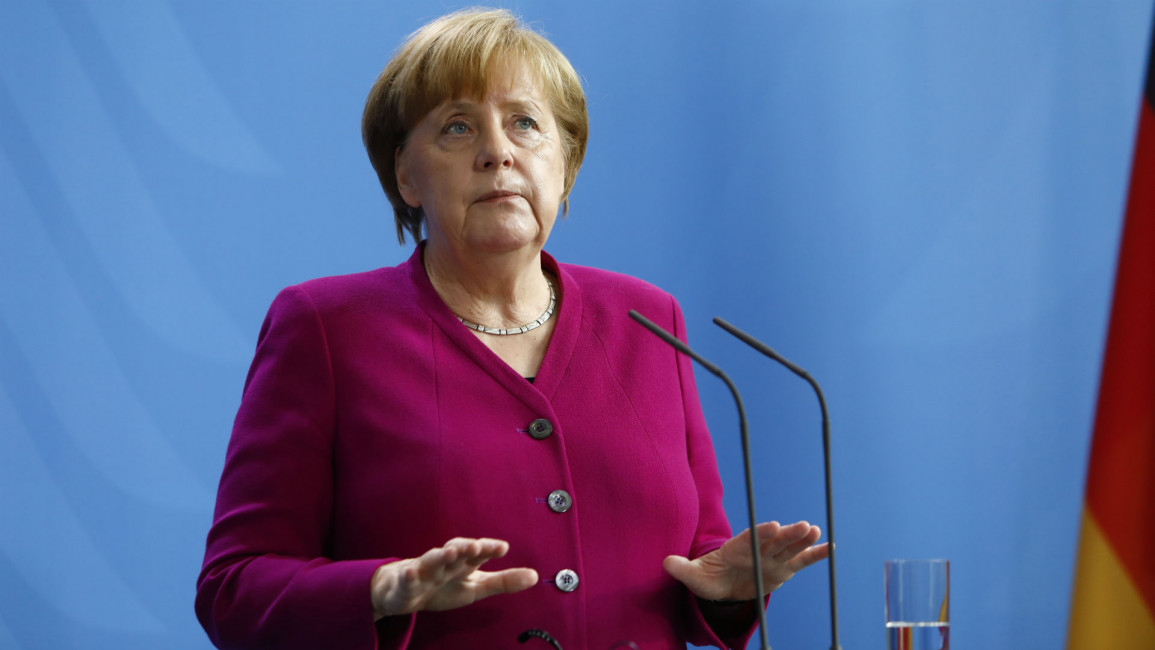Migration could determine Europe's fate: Merkel
"Europe has many challenges but migration could end up determining Europe's destiny," she told German lawmakers.
The path the EU chooses could decide if the bloc is viewed by others as a credible defender of the values it espouses, she said.
Europe can decide to "overcome the challenge in a way that people in Africa or elsewhere believe that we are guided by our values, and that we take a multilateral rather than a unilateral approach", Merkel added.
The alternative would result in a situation where "no one will believe in our value system that has made us so strong."
"That's why the stakes are high," said the German leader, who faces trouble at home over her decision in 2015 to open Germany's borders to asylum seekers fleeing war and misery in Syria, Iraq and elsewhere.
If a deal cannot be reached between all 28 of the bloc, Merkel said that a compromise must be found among "a coalition of the willing", while warning against putting disproportionate weight on countries at the frontline.
"Certainly that's not a perfect solution, but it's a start toward better control and order" of the migration problem, she said.
Italian Prime Minister Giuseppe Conte threatened to veto the summit statement if fellow leaders fail to do more to help Italy cope with migrants.
"It's a possibility I hope not to consider, but if we reach that point, on my behalf we will not have shared conclusions," Conte told reporters when asked if Italy would veto the statement on migration.
 |
| [Click to enlarge] |
The stakes are particularly high for Merkel who faces increasing pressure at home to find a solution to the migrant crisis.
Interior Minister Horst Seehofer gave Merkel an ultimatum to find a solution before he defies her and begins to turn away migrants at the border.
Merkel's comments come after Italy's new populist government defiantly declared that its ports were closed to foreign-flagged rescue ships, after accusing fellow EU members of failing to share the burden of migrant arrivals.
Earlier this month Italy's far-right Interior Minister Matteo Salvini triggered an EU-wide row when he barred the French charity-run Aquarius rescue ship, carrying 630 migrants, from docking in Italy. The move was echoed by nearby Malta and the ship was later welcomed by Spain.
Salvini had hailed the news that a second migrant ship he had turned away was being taken in elsewhere.
Earlier this month, Rome rejected the Aquarius ship carrying 630 migrants, forcing it to eventually dock in Spain.
"For women and children really fleeing the war the doors are open, for everyone else they are not!" Salvini tweeted.
The decision by Italy's new hardline government to turn away rescue vessels has plunged Europe into a political crisis over how to collectively handle the huge numbers of people migrating from Africa, the Middle East and Asia.
Italy and Malta say they are unfairly bearing the brunt of the new arrivals, while other European countries are urging more forceful policies to block their entry.
The 28-leader summit will discuss plans to overhaul the bloc's asylum system, which has been under severe pressure since the migration crisis exploded three years ago.
Underscoring the divisions, Poland, Hungary, Slovakia and the Czech Republic - which reject any suggestion of mandatory refugee resettlement among EU members - said they would boycott the meeting.



